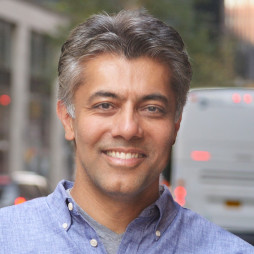
The above average rainfall in the northeast recently had an amazing side effect. An entire weekend’s worth of my kids’ sporting events got cancelled — softball, baseball, soccer — even a 1st grader’s outdoor birthday party. We were hit by something we didn’t realize we missed — a real weekend. It felt like being paid for a shift without having to show up to work.
A recent NYT article discussed that doctors who take care of themselves have patients with better outcomes. It wasn’t until that rainy weekend that I realized how nonstop life had become in the recent months. We had no downtime until that day. After the requisite 30 minutes of the kids’ video gaming (which turned into a little over 60 minutes), the house fell silent. It was 10am on a Saturday and our fully occupied house sounded almost empty. One child was playing with a plastic light saber, the other with a set of chattering toy teeth. I got to do some long-form reading while my wife took a lengthy and indulgent shower. She and I then found some solitude to chat without the gong of the spring sports calendar bearing down on us. “This is so nice,” she said. “It feels like I’m having an affair with you,” I joked.
Yet the topic of our conversation veered inevitably to summer camps and more sports deadlines. Should my seven year-old daughter try out for travel soccer? It’s not her favorite sport and her asthma takes a toll on the field. Due to her birthday, though, we have to decide in 1st grade (now) instead of 2nd. “It will mean 3 practices and 1 game every week,” my wife added. The contrast to this rainy, idle weekend felt extreme. “Why would we want to schedule anything on the weekends?” I thought.
The evidence on team sports this young is mixed. While we are enthusiastic about pushing our kids into competitive physical activity that also creates social connections, one psychologist, Dr. John Huber states that for most kids, they engage in the sports to please their parents which can be unhealthy for their emotional development. This, amidst growing evidence that unstructured play is the single most necessary activity for kids, which on many levels is exactly the opposite of team sports.
Before we came to a decision, our rainout had ended. The only activity that escaped the rain — a violin lesson — started at a quarter past noon. But we would all meet at a family diner afterwards, and plot what to do with the magical afternoon hours we had been gifted by the clouds above.
Imagine — to make every weekend like this one, requires no tryouts no membership fees, no equipment purchases. Just the willpower to buck the extracurricular-industrial complex [youth-sports-industrial complex?]. A week later, my daughter’s travel soccer tryouts were removed from the calendar, but not because we pulled the plug. Instead, the following weekend during a full sports cacophony, my daughter herself said about the soccer tryouts, “I don’t think I want to.” My seven year-old taught me something that day about the physician burnout crisis as well — maybe what doctors need is some unstructured play time.
Vatsal G. Thakkar, M.D., is a Doximity Fellow and Clinical Assistant Professor of Psychiatry at the NYU School of Medicine. He is also the founder and CEO of Reimbursify, a startup in the out-of-network reimbursement space. You can follow him on Twitter: @VatsalThakkarMD







